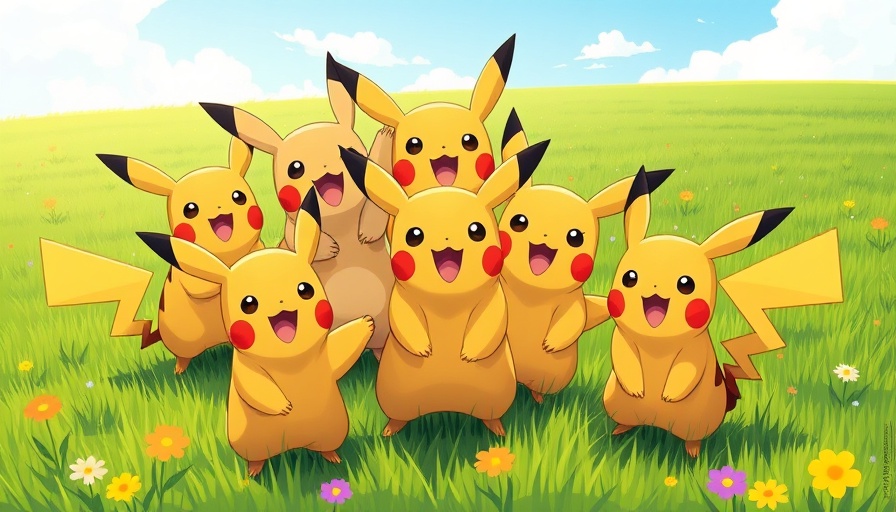
Saudi Arabia Makes a Major Move with Pokémon Go Acquisition
This week, the gaming industry was shaken as Scopely, a mobile game maker owned by Saudi Arabia’s Public Investment Fund, announced its acquisition of Niantic, the developer behind the wildly successful Pokémon Go, for a staggering $3.5 billion. This deal marks a significant step in Saudi Arabia's strategy to diversify its economy and invest heavily in the gaming sector, a shift from its traditional reliance on oil.
Niantic has been struggling recently, failing to replicate the monumental success of Pokémon Go across its other augmented reality titles. With over 100 million monthly users, Pokémon Go has changed the mobile gaming landscape, bringing nearly one billion dollars in revenue last year alone. The acquisition promises to bring further investments into Niantic's efforts to develop more 'forever games' that can sustain engagement long-term, as Niantic CEO John Hanke highlighted.
What Does This Mean for Niantic's Future?
As Niantic becomes part of Scopely, questions linger about the direction the company will take. Niantic is not just responsible for Pokémon Go; it also oversees franchises like Monster Hunter Now and Pikmin Bloom. Under new ownership, how will these properties evolve? Scopely has committed to nurturing these games and ensuring they connect users and promote exploration, which resonates with Niantic's original vision.
With this sale, however, comes the burden of Saudi Arabia’s controversial track record, including its history of human rights abuses. This raises ethical considerations regarding gaming investments, often labeled as "sportswashing" by critics who argue that these moves serve to distract from the regime's problematic reputation. How gamers and the broader public perceive this acquisition will undoubtedly affect Scopely's operations and Niantic's brand identity.
Steam Sale: Unmissable Discounts for Gamers
In contrast to the acquisition news, gamers are reveling in one of Steam's most substantial sales in recent years. Discounts on a wide variety of games have attracted players old and new, allowing them to purchase popular titles at a fraction of their price. Steam's consistent ability to offer compelling deals serves to reinforce its dominance in the gaming digital distribution market.
During this sale, gamers can find thousands of titles ranging from indie hits to blockbuster releases, creating a golden opportunity for both casual and hardcore gamers to expand their libraries without breaking the bank. This influx of purchases also reflects a growing trend of engagement in the gaming community, with more players becoming active amidst a post-pandemic era.
Battlefield 6: Roaring Back into the Fray
In addition to major sales, the gaming community is buzzing about leaks surrounding Battlefield 6, which indicate a return to the series' classic modern combat roots. The excitement surrounding this revelation points to a strong desire for nostalgia within the gaming community, suggesting that players are eager for a revival of the traditional shooters that defined their earlier gaming years.
While much about the upcoming release remains speculative, the hype seems to be reigniting interest in the franchise. The discussion surrounding Battlefield’s return encourages gamers to consider the evolution of shooter games and what features they would like to see in a modernized iteration of this beloved series.
Implications for Gamers and the Industry
The combination of these significant developments creates a complex landscape for gamers. Saudi Arabia’s investment in a flagship title like Pokémon Go raises questions about the future direction of gaming, while the robust Steam sale and the anticipation surrounding Battlefield 6 could mark a renaissance for the gaming industry post-pandemic. As gamers continue to rally behind favorite franchises, the evolving dynamics between gaming and investment practices remain a topic of vital discussion.
 Add Row
Add Row  Add
Add 




Write A Comment